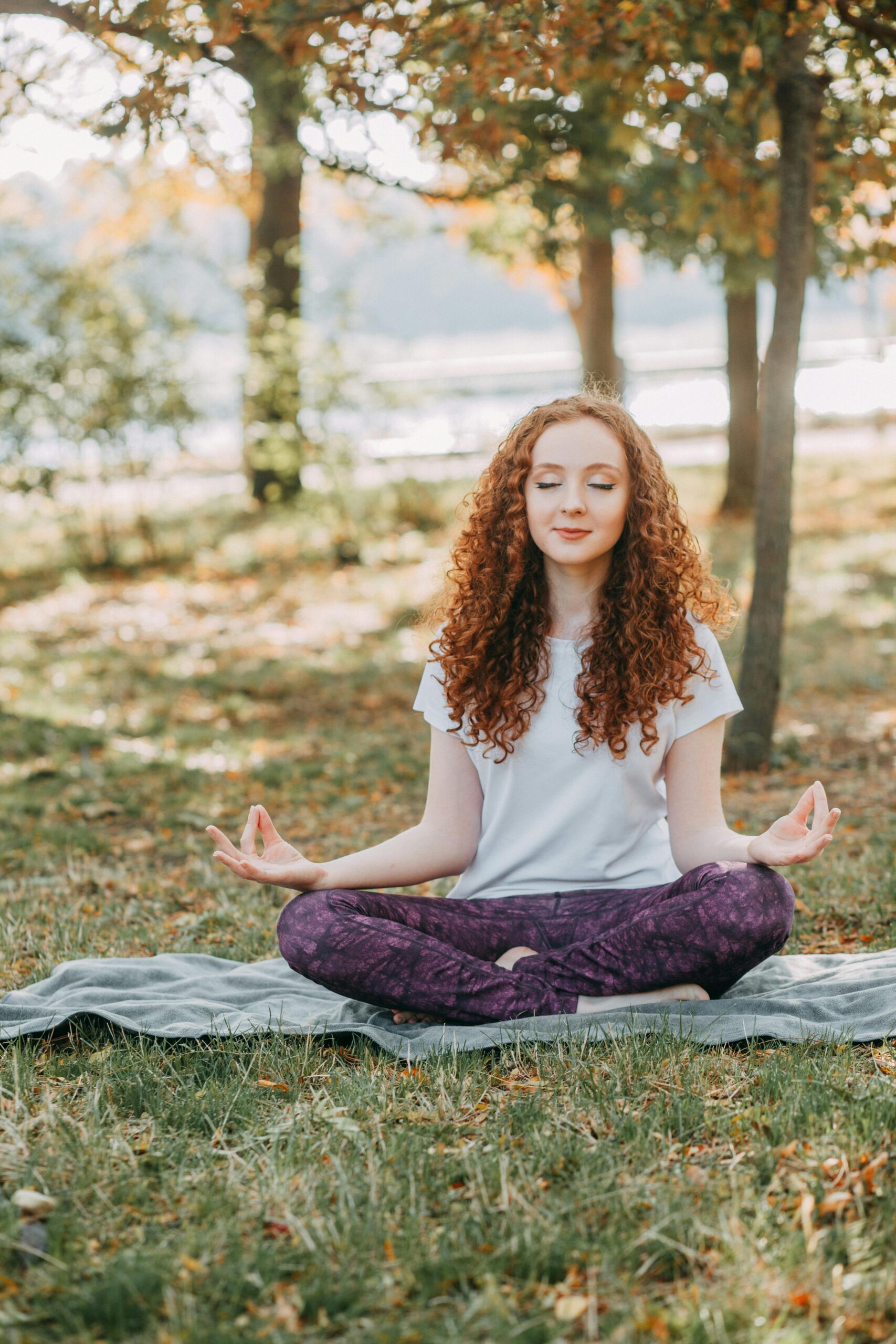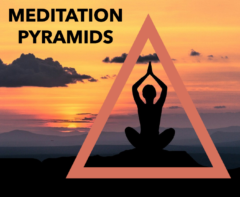Meditation isn’t just about sitting still with your eyes closed. It’s prepping your body and mind for what’s next—like a solid night’s sleep. When you meditate, it’s like giving your brain a hearty hug, telling it to chill out and slow down.

The impact starts in your head where meditation takes over brain waves. Your brain shifts from those fast-paced beta waves—the ones making you think endlessly about your to-do list—to slower alpha waves, which are all about calm and relaxation. This change is like turning down the volume on stress and letting in a peaceful vibe, paving the way for sleep.
Now, there’s science to back this up. Various studies, including research published in respected journals like JAMA Internal Medicine, show that people who meditate regularly report better sleep. They’re tossing and turning less, catching more Z’s, and waking up fresher. This isn’t just hearsay; these folks are experiencing genuine changes in how they sleep.
So, how’s meditation doing this magic trick? It’s slashing stress, reducing anxiety, and tackling overactive minds. All these things mess with your sleep, so dealing with them helps your brain take a chill pill, leading to better shut-eye.
Remember, science aside, everyone’s experience with meditation differs. Different techniques work better for different people, so tinkering around to see what clicks for you can be part of the fun journey to better sleep.
How Meditation Alleviates Insomnia
Insomnia feels like that late-night argument you just can’t shake off, right? It’s where meditation steps in as a peacekeeper, helping draw a curtain over your day-to-day stresses. One of the big guns in the meditation arsenal is its ability to lower stress hormones, like cortisol. Too much of that stuff, and your sleep’s out the window.
When you meditate, especially using mindfulness techniques, you’re inviting your body to enter a relaxed state. Your breathing slows, and the pile-up of stressful thoughts quietens down. It’s like hitting pause on your daily mental noise, giving your mind a break it desperately needs before sleep.
Look at it this way: meditation helps train your brain to let go. It’s like telling your mind, “Alright, that’s enough buzzing for today.” This relaxation effect not only helps you fall asleep quicker but also bolsters overall sleep quality. It’s like fine-tuning your brain into a state that says, “Sleep’s a good idea—let’s stick with it.”
Don’t just take my word for it. Tons of folks have ditched their sheep-counting habits in favor of meditation. Take it from people who’ve been there; they’ve used guided meditations or apps like Calm and Headspace to ease their way into more restful nights.
Experiment with different approaches. Some might jive with bedtime stories guided by calming voices, while others might favor the silent reflection of mindfulness. Think of it as a sleep buffet—pick what suits your evening mood.

Understanding the Meditation-Sleep Relationship
Let’s get into the nitty-gritty of how meditation and sleep are linked. Meditation’s like a secret handshake with sleep, setting up your mind to relax and let go. Both work on the principle of calming the mind and reducing stress, which is why they get along so well.
Understanding meditation’s role here starts with the basics. Meditation involves focusing and relaxing the mind, often by paying attention to your breath or repeating a calming word or phrase. This mental stillness can translate to physical relaxation, making it easier to slide into sleep.
Now, here’s the kicker: it’s not just about sleeping better tonight. Regularly practicing meditation can actually help reset your sleep cycle for the long haul. That’s a big win for anyone battling insomnia or restless nights. Consider meditation like a trusty sleep ally—a few sessions, and it starts creating a smoother path to dreamland.
Being consistent with meditation helps reinforce this relationship. It’s like teaching a dog a new trick. A little persistence, and you notice changes—calmer nights, smoother mornings, less groggy afternoons. The plus side? This all happens without popping a single pill.
Ultimately, it’s about building a habit. Set a regular time, create a cozy meditation spot, and stick with it. Even if it’s just five minutes before bed, those peaceful moments can echo into your night, turning meditation into your sleep’s best friend.
Types of Meditation To Combat Sleep Disturbances
When it comes to tackling sleep disturbances, not all meditation styles are created equal. Some are tailor-made for lulling your mind into a restful state. Let’s start with mindfulness meditation. It’s about staying present and focusing on your breath, sensations, or a mantra. This technique helps cut through the noise that often leads to restless nights.
Enter guided imagery. This one’s like a mental vacation. Imagine you’re on a quiet beach or in a peaceful forest. Someone typically guides you through the journey, helping you let go of tension and clear your mind for sleep. It’s perfect for those who might struggle with their thoughts taking center stage.
Ever heard of yoga nidra? It’s not about striking a pose as much as it is about deep relaxation. Often called ‘yogic sleep,’ it involves lying down, listening to a guide, and gradually drawing awareness inward. It’s a powerhouse for those nights when stress is running the show.
There’s also transcendental meditation, where you silently repeat a mantra, giving your active mind something to focus on. This technique can be particularly handy for quieting the mental chatter that’s keeping you awake.
Start exploring these different styles to see what suits your evening groove. Even mixing things up could be just what you need. Try a bit of each and watch how your sleep patterns respond. It’s like crafting your own personalized sleep playlist.
Practical Meditation Tips for Better Sleep

Getting started with meditation for sleep might feel a bit daunting, but it’s all about finding what works and sticking with it. Start small. Even a few minutes of meditation before bed can make a big difference. Don’t pressure yourself to get it ‘right’; just be consistent and patient.
Create a routine that feels comforting and easy. Maybe it’s a bit of mindful breathing as you lay on your pillow, or guided imagery that transports you far from a busy day. The aim is to cue your body that it’s time to unwind. Make your meditation spot cozy and inviting—think dim lights and a comfy spot.
Find the right app or tool that resonates with you. There are plenty of meditation apps, like Insight Timer or Headspace, which offer sleep-focused meditations. These can provide structure and variety, helping you ease into meditation with ease.
Some people struggle with wandering minds. And that’s okay—it’s normal. The trick is to gently bring your focus back to your breath or the meditation guide. Over time, this gets easier, and you’ll find your brain naturally starts to ease into meditation mode more quickly.
Consider coupling your meditation with other wind-down rituals, like a warm bath or herbal tea. Creating a holistic bedtime routine reinforces signals to your body that it’s sleep-time, making it easier to glide into restful sleep.
With these practical steps, you’ll find meditation becomes a natural and rewarding part of your wind-down process. Before you know it, you’ll look forward to this peaceful pause before bed and the restful night it promises.

Thanks for such a detailed guide on using meditation for better sleep! I’m curious, which meditation technique is usually most effective for someone who has difficulty quieting a busy mind before bed? Also, is there a recommended duration for meditating before it has an impact on sleep quality?
I’d love to hear if others have found one style particularly helpful in overcoming insomnia or if it’s best to experiment with different types until you find what works. Looking forward to trying some of these tips!
Hi Roopesh
I’m so glad you enjoyed the guide! For a busy mind, guided meditations or body scan techniques are often very effective for easing into sleep. These methods help shift focus gradually away from thoughts by directing attention toward breathing or physical sensations, which is great for calming mental activity before bed.
In terms of duration, even 10-15 minutes can have a noticeable effect, especially when practiced consistently. Many people find that gradually extending sessions to 20-30 minutes over time enhances the quality of sleep further, as it allows you to relax more deeply.
And yes, experimenting can be very helpful! Some find body scan meditations ideal, while others benefit from mindfulness or breathing-focused practices. If anyone else has tips or experiences to share, we’d love to hear! Best of luck with the tips, and sweet dreams ahead!
Hi there, thanks for the great article on meditation. Meditation has changed my life and I’ve used it in different ways for different results. When starting a new job I listened to a conference guided meditation on the train going to work. I was using guided meditations at night but found I would fall asleep but would wake up when the speaking stopped or would fall asleep with EarPods in my ears. I’m now trying mindfulness where I concentrate on my breathing and find it works better. Do you recusing different techniques for different situations?
Thank you for sharing your meditation journey—it’s inspiring to hear how you’ve adapted it to different life situations! It’s wonderful that meditation has had such a transformative impact on your life, and it’s fascinating to see how you’ve tailored techniques like guided meditations and mindfulness to suit your needs.
Falling asleep during guided meditations is quite common, especially at night when the body naturally relaxes. Shifting to mindfulness and focusing on your breath is an excellent choice for staying present and awake. It’s also great for centering yourself and calming the mind during moments of stress or transition, like starting a new job.
To your question, yes, I definitely recommend using different meditation techniques depending on the situation. For example:
Guided meditations are great for specific goals, like reducing anxiety, boosting confidence, or preparing for significant life changes. They provide structure and guidance, especially when your mind is busy.Mindfulness meditation, like focusing on the breath, works well for cultivating presence and clarity in daily life. It’s also a great way to build resilience and handle unexpected stressors.Body scan meditations are helpful for relaxation and connecting with your physical self, especially after a long day or when trying to release tension.Loving-kindness meditation can be powerful for improving relationships and fostering compassion, particularly during times of emotional challenge.
It’s all about experimenting and finding what feels most effective for you in a given moment. Meditation is such a versatile practice, and it’s clear you’re making it your own, which is fantastic. Wishing you continued growth and peace on your meditation journey!
Kindest regards,
Alan